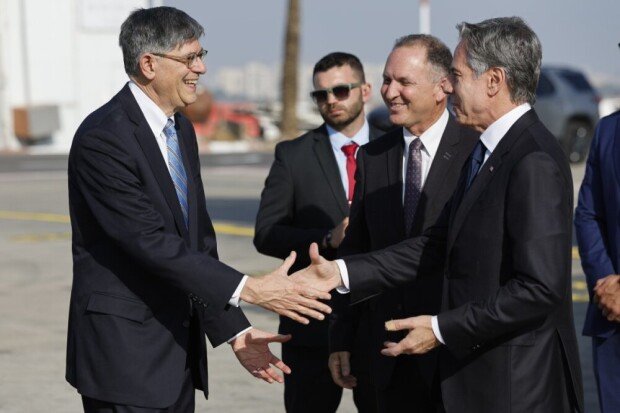Israel's entry into Gaza City sparks street battles with Hamas
Israel's entry into Gaza City sparks street battles with Hamas
Posted November. 04, 2023 07:59,
Updated November. 04, 2023 07:59

Israel and Hamas engaged in intense street battles on Thursday as Israeli forces entered Gaza City, the stronghold of the Palestinian militant group. Israel aimed to destroy Hamas's secret underground tunnels, striking at the heart of Hamas's headquarters almost one month since the war began on Oct. 7. The Israeli military announced that it killed around 130 Hamas armed forces in just one day. However, Israeli bombardment over Jabalia, the largest refugee camp in Gaza, for three consecutive days led to a sharp rise in civilian casualties in Palestine, prompting U.S. State Secretary Tony Blinken to visit Israel on Friday to once again pressure for humanitarian pauses.
Israeli army spokesperson Daniel Hagari announced on Thursday that they had successfully besieged Gaza City, the epicenter of Hamas, and further stated that Israeli armed forces are engaged in intense combat, targeting Hamas headquarters, outposts, and other facilities supporting terrorism while eliminating terrorists in street battles. Israeli Prime Minister Benjamin Netanyahu also emphasized that they are currently at the peak of the entire war, showcasing remarkable victories and progressing through to the outskirts of Gaza City.
The Financial Times reported that Israel had completely encircled Gaza City, as seen in satellite images. This means that, apart from the western region of Gaza City, which borders the Mediterranean, all routes in and out on the other three sides are now under military blockade. Israeli air forces and navy launched a massive strike against Gaza City, targeting and destroying 100 underground tunnels. Israeli forces claim to have targeted over 12,000 Hamas objectives using AI technology from their engineering battalion.
Meanwhile, the Iranian Militia in Syria has deployed to northern Lebanon to support Hezbollah, who are now joined by Iran-backed Hezbollah from Lebanon and Yemen's Houthis. These developments are raising concerns about a prolonged war.
As the conflict escalates, the civilian death toll in Palestine is skyrocketing. Gaza's Health Ministry officials report that at least 9,061 people have lost their lives in this conflict, including over 3,760 teenagers under 18.
Some power generators for crucial hospitals in the Jabalia refugee camp were disabled due to concentrated strikes. The Palestinian Health Ministry warned that they may need to discontinue electricity supply to oxygen generators and morgue refrigerators. They emphasized that without a guaranteed supply of electricity or fuel, a disaster looms in the near future.
Following U.S. President Joe Biden's mention of humanitarian pauses amid escalating humanitarian risks, National Security Council spokesman John Kirby, in a subsequent briefing, discussed the idea of necessary pauses to "get aid in and get hostages out safely.”
Before his trip to Israel, Secretary of State Blinken announced that he would discuss the 'two-state' solution as a foundation for lasting peace with both Israel and Palestine. He is expected to share his position with Prime Minister Netanyahu upon arriving in Israel on Friday.
Meanwhile, foreign nationals and dual citizens have lined up to escape the area. Reportedly, 344 people have evacuated in just two days since the Rafah crossing between Southern Gaza and Egypt reopened.
tree624@donga.com







